our services
Any and all of these services or approaches may be utilised within a session. Any suggested approach is explained within the session, with the aim of selecting the most appropriate tool and approach for that client, and that presenting issue.
our services
Any and all of these services or approaches may be utilised within a session. Any suggested approach is explained within the session, with the aim of selecting the most appropriate tool and approach for that client, and that presenting issue.

Cognitive Behavioural Therapy
Cognitive Behavioural Therapy is widely recognised as a staple in psychological counselling in the western world. It essentially is focussed upon recognising and changing thoughts and patterns of behaviour in order to change the impact that these have upon our mood and functioning. Many people find it helpful in managing symptoms and reactions for a range of psychological conditions including (but not limited to) Anxiety, Depression, Addiction, Phobia and PTSD.

Acceptance & Commitment Therapy
(Also known as ACT)
ACT utilises a number of tools including mindfulness, meditation, values and cognitive reframing in order to accept what is out of our personal control, and commit to long term beneficial change. It acknowledges, includes and responds to emotion and provides a framework to develop and increase distress tolerance.

Hypnosis and Hypnotherapy
(A minimum of 3 sessions is recommended)
Hypnosis and Hypnotherapy involve utilising a deep relaxed state to work directly with the subconscious. Often persistent problems or ingrained responses are not a conscious problem, they are an unconscious problem – and if they WERE a conscious problem then they would already have been addressed and changed by the person already. If you are looking for assistance with an unconscious problem and are concerned or wary about a hypnotic state, then alternative methods such as the Swan can be utilised instead, where there is no hypnotic trance involved.

Emotional Freedom Technique/Tapping
Emotional Freedom Techniques is a tool which, once taught, can be used by anyone anywhere. The main goal is to reduce the intensity of an emotional reaction, not to change or remove thoughts, and does not change external circumstance but rather how much that thought, memory or stimuli impacts. It draws upon various theories of alternative medicine including acupuncture, neuro-linguistic programming, energy medicine, and Thought Field Therapy, and was originally developed by Gary Craig.
aire psychology
Counselling can provide a different objective & perspective in a confidential setting. It can provide an additional source of support during challenges with someone trained to assist in managing problems and distress.
aire psychology
Counselling can provide a different objective & perspective in a confidential setting. It can provide an additional source of support during challenges with someone trained to assist in managing problems and distress.

Brain-based Approach
Brain based therapy recognises, teaches and uses strategies developed with the person in order to “rewire” their brain. It utilises neuroplasticity and recognises that sometimes reactions are organically driven rather than a conscious choice. This can be particularly effective as it starts to not only explain that there are reasons why someone reacts as they do, but what they can do about it, regaining a sense of control and a sense of having more of an “owners manual” for their brain.

Meditation

Positive Psychology
Positive psychology looks not just at correcting what is perceived to be wrong or a problem, but rather what would lead to genuine improvement, joy, happiness and growth. It incorporates strengths rather than focussing upon weaknesses, and acknowledges concepts like post-traumatic growth. It is an applied approach to look at what allows a person to thrive and flourish at their optimum rather than simply survive.

Short Term Solution Focussed Counselling
Short term solution focussed counselling focusses upon current functioning, symptoms and reactions to specific situations or issues. It is based on what would be practical and realistic in order to effect change rather than exploring long term therapy, or addressing issues from childhood (for example). It is future focussed, goal directed, and focuses on solutions rather than on the problems that brought the client to seek therapy.

Motivational Interviewing/ Cognitive interviewing
The main idea of motivational interviewing is to purposefully create a conversation around change, without attempting to convince the person of the need to change or instructing them about how to change. Whilst it is client centred, it is curious and invites reflection, and focuses upon motivational states and stages of change.

EMDR – Eye Movement Desensitisation and Reprocessing Therapy
Eye Movement Desensitization and Reprocessing (EMDR) therapy is a structured, evidence-based psychotherapy designed to help individuals process and recover from trauma and other distressing life experiences. Developed by Francine Shapiro in the late 1980s, EMDR is particularly effective for treating Post-Traumatic Stress Disorder (PTSD) but is also beneficial for a range of psychological issues, including anxiety, depression, and specific phobias.
bookings
Book your appointment online today.
bookings
Book your appointment online today.
reach us
address
Aire Psychology has session options at:
- 6 Pendlebury Ave Cardiff
- 40 Gavey st Mayfield
There are online and phone appointments (Zoom and Telehealth) available.
phone
efax
(02) 4027 5656
